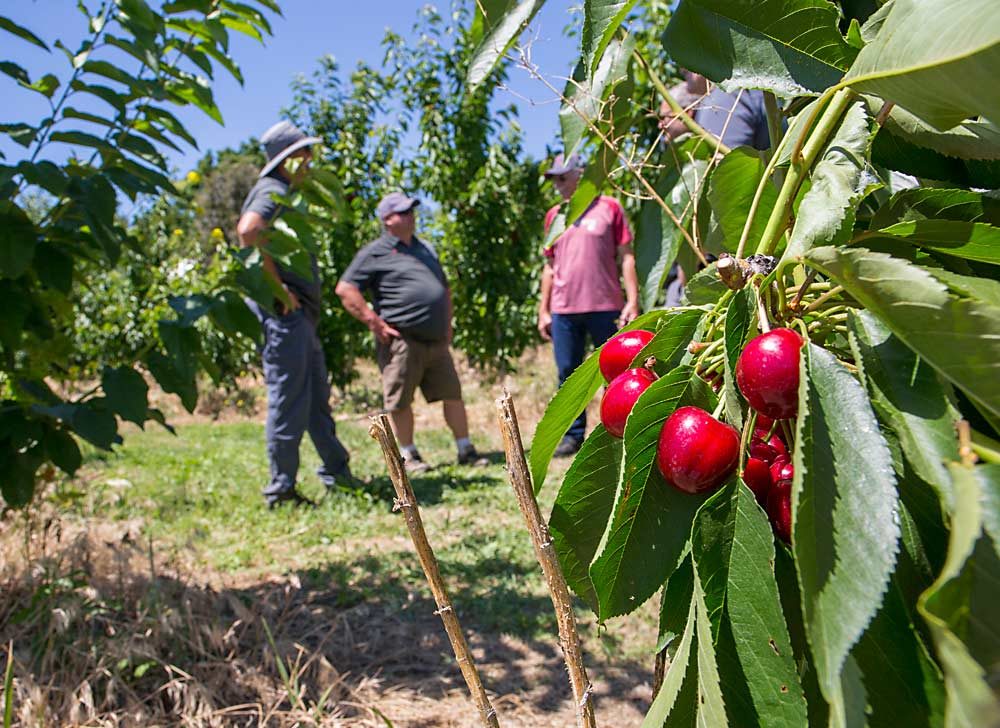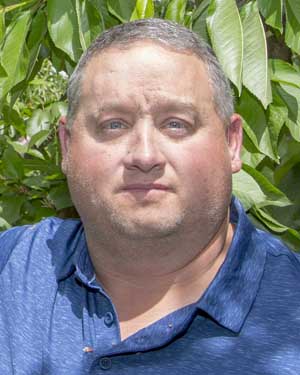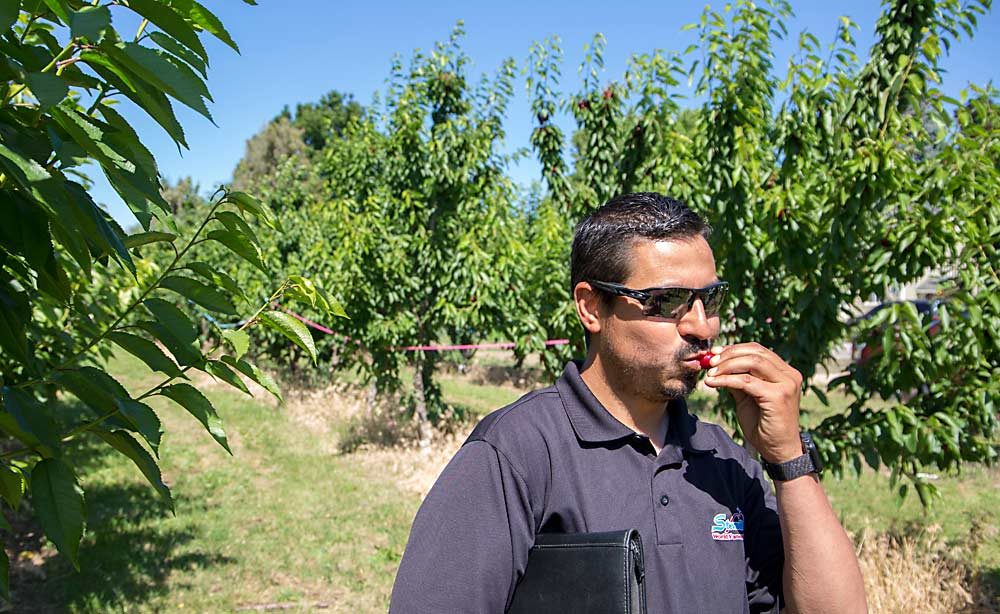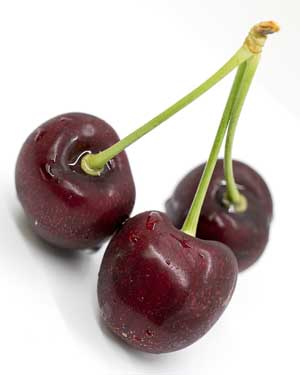
When Kevin Carney noticed one of his cherry trees blooming and ripening weeks earlier than anything else in his Cashmere, Washington, orchard, he wanted to pull it out. The odds of the mystery cherry being unique, valuable and anything but a headache seemed way too slim.
“I cannot be that lucky,” he recalled thinking.
But he just might be, if industry interest in his Carneval cherry is any indication.
Named for a play on words with his last name and his wife’s first name, Val, the new cherry competes with — if not beats — the early timing of Chelan with more precocity and larger, firmer and tastier fruit.
That’s the pitch he and his nursery, Willow Drive of Ephrata, Washington, are going with. They have teamed up to patent the Carneval cherry and commercialize the plant material.

Trying to make the most of the opportunity, the team designed a logo and printed polo shirts, passing them out at grower tours in June in a second-generation block in the Sunnyslope area of Wenatchee, an earlier site than Cashmere. Several growers said they plan to purchase at least a few trees to test out the new variety.
Carney and Willow Drive have chosen to make wood available to all nurseries, to boost volume as quickly as possible, rather than limit access as they might for a club variety apple. That’s what is best for the grower in this case, said Jim Adams, co-owner and sales manager of Willow Drive.
“So that the variety owner can have the most potential for this to grow as fast as possible,” he said.
Grower interest
Dark sweet cherries aren’t usually purchased by variety anyway, said Loren Queen, a sales representative for Tree Connection, a plant sales agency in Dundee, Oregon. Still, the collaboration among nurseries is unusual.
“It’s refreshing to see that there’s that opportunity for guys, especially your smaller to midsize growers that often don’t have an opportunity to get in on a club variety,” Queen said.
Growers may have to be patient to get ahold of trees. There’s a lot of interest in early cherries and therefore a lot of demand.
“So, there’s already quite a list, but the thing is they can get on the list,” Loren said. “With a lot of the club varieties, with apples in particular, you can’t even get on the list.”

The demand doesn’t surprise Todd Fleming, a fruit grower and owner of Helios Nursery in Quincy, Washington, even if it’s just for curiosity’s sake. Competitive producers want to try new things. “Most serious cherry growers want to test every variety,” he said, as several growers tasted fruit underneath the new trees during Carney’s tour.
Count Kyle Mathison Orchards in, said Alfredo Reyes, director of horticulture for the Wenatchee-area production company. He and his colleagues plan to plant several test trees to vet it for themselves, but he’s excited by what he sees, he said.
The company has recently pulled out some Bings and is looking to replace them with something early. Currently, Skeena is the company’s earliest variety, but by the time it harvests in North Central Washington, the market is pretty saturated and prices have dropped.
Overall, Washington’s industry needs early cherries. Reyes said the company may pick into September this year. “We’re doing pretty good on that later side,” he said.
Jonathan Perkins is feeling less cautious. He plans to plant 10 acres on open ground near Brewster. Though the site is north of Wenatchee, he considers it early due to the slope of the hill that catches morning sun and afternoon heat.
Besides, he’s fed up with Chelan, which yielded only 2.5 tons per acre this year when he harvested them on June 15. “Chelan cherries want to grow tree instead of fruit.”

Carneval’s history
Carney first noticed the whole tree mutation in 2004 in a Skeena block on Mazzard rootstocks in his Cashmere orchard, a relatively late site up the Wenatchee Valley. In 2014, a chemical company field rep convinced him to propagate a second-generation block in Wenatchee on Gisela 6 roots, and he added a third generation last year to a 13-acre orchard. Willow Drive got involved about a year ago.
So far, they suspect it will yield 10 to 12 tons per acre with between 9 and 10 row size, falling between 310 and 360 on the firmness scale. However, they’re careful to mitigate their promotional materials with caution. So far, they only have observations from the mother tree in Cashmere and a Wenatchee orchard which they have fertilized, thinned and pruned for scion wood, not fruit production.
For example, the extra nitrogen they gave the tree to produce more vigor probably cut back on yield, affected fruit quality and delayed harvest. Meanwhile, they planted a few Chelans this year at the same site, but they still are too young for a reasonable comparison.
That’s why they were excited for the interest at the tour. They want other growers to see how it performs, as well.
“I’m hoping you guys run with it,” Carney said. •
—by Ross Courtney






Leave A Comment